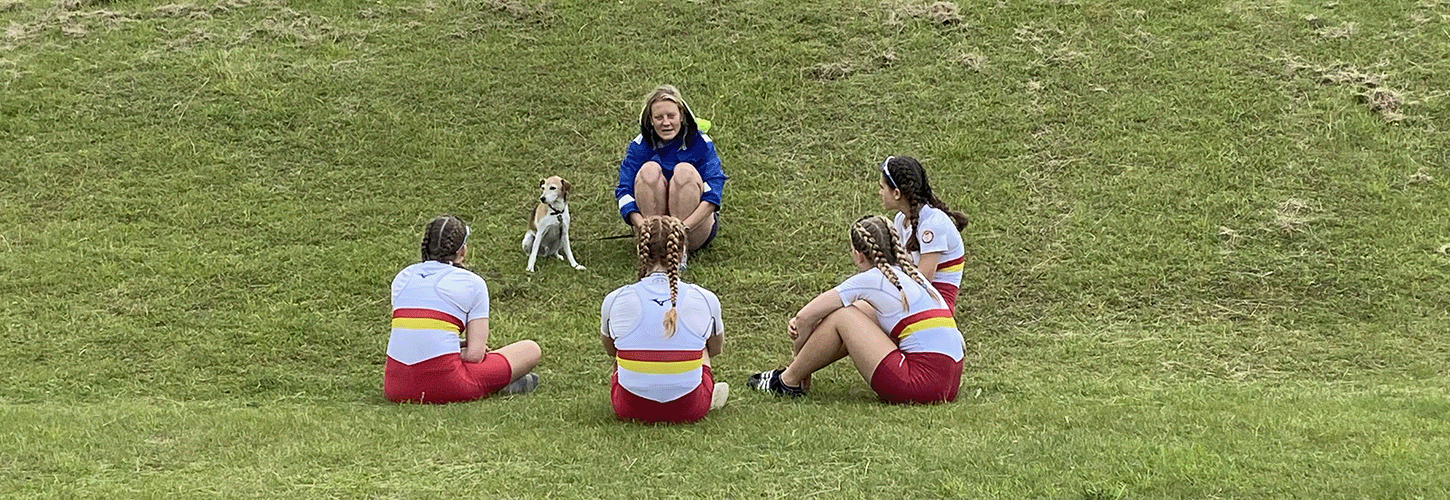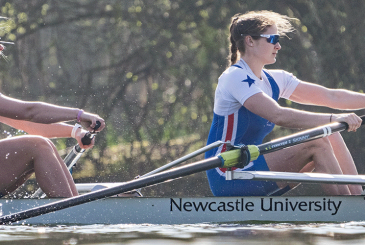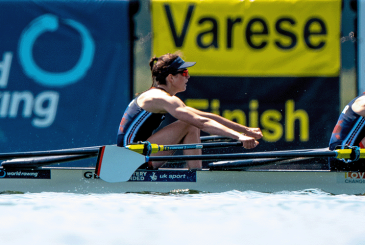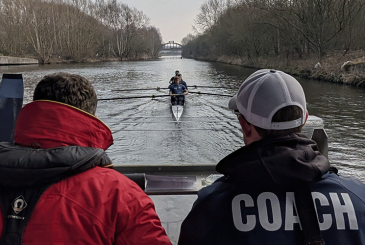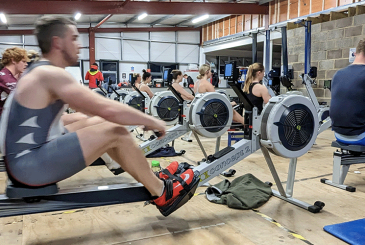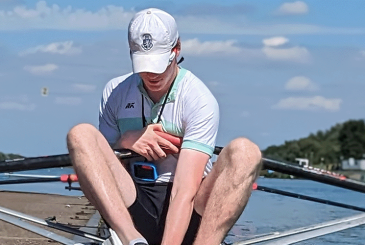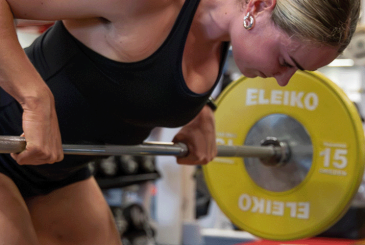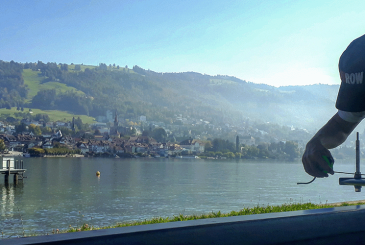Rhona MacCallum, the British Rowing 2023 Talent Development Coach of the Year, is the Junior Women’s Coach at Tideway Scullers School and GB Rowing Team Under-19 Sculling Lead Coach. She shares her coaching insights with Emma Graham.
The beginning
Rhona participated in various sports before learning to row at the University of Edinburgh. During this time the club was essentially student run with the help of a few volunteer coaches. MacCallum describes how “all of (the students) were quite involved in (their) own successes.” She adds, “You would get a bit of coaching and then spend some time working on it yourself.” It was whilst at Edinburgh that Rhona’s coaching journey began as she started to coach beginner crews in sweep boats.
Moving south, she learnt how to scull at Tideway Scullers School (TSS). Here she began helping out with the TSS junior squad and coaching at a few universities in London.
Internal inspiration
When asked about what motivates her coaching, MacCallum simply answered ‘people’. She goes on to say that “you get inspired by the athletes you coach”. The rowing season itself is very repetitive, MacCallum reflects, with head racing season finishing at the Tideway races, then into regattas culminating with Henley. With this in the background, it’s the people are what keep the job interesting.
As a coach, Rhona has come to realise that the same thing does not work with each new cohort. “It is not a system, and it can’t be a system. It has to be tailored to the athletes in your care,” she explains.
Ultimately, being able to witness and be a part of her athletes achieving more than they ever thought possible is the best part of the job by far. MacCallum explains that she is still very competitive and likes to win. But ‘winning’ is not always standing on top of a podium. Sometimes it’s the vast improvements you get to witness each day. Being able to facilitate these individual wins within her squad is the feeling that Rhona chases.
Balancing time commitments
Time is Rhona’s greatest enemy when it comes to coaching. As she also has a full-time job, she has had to learn to balance her own commitments.
In addition, she describes the constant challenge of ensuring that she dedicates enough time to each athlete so that they feel heard and receive enough attention. And this needs to be quality time that is impactful. The other side of this is that athletes in full time education also have limited time. To address this, she prioritises communicating effectively and making a tangible difference quickly. External conditions such as exams and athletes commuting long distances to training will exacerbate these pressures.
Time spent coaching is therefore very precious. This includes both the training completion and supplying the necessary pastoral care. Her solution is that “you have to learn how to read people very quickly”.
A spectrum of approaches
To help her squad achieve their goals, MacCallum describes how she operates on a spectrum. This ranges from being completely at the service of the athlete to being more autocratic and serious about the process and getting it done.
There is a skill to learning when, as a coach, you need to lead and when you need to serve. This is a fluid continuum and extends to the tension between catering to the individual and creating a cohesive squad.
“Sometimes you are leading them from the front, and sometimes you are pushing them from behind,” she says.
Keeping it real
Authenticity is the key to Rhona’s coaching. Whether on land or water, she is always 100% herself, for example, regularly arriving at TSS straight from work in her dress and but with wellies on ready to go. This also means her athletes can see that – like them – she has other commitments, as well as good and bad days. “There is a lot of personality in my coaching,” MacCallum says, meaning that she can be more a part of the team and less of an intimidating ‘teacher’ figure. It is important to Rhona that she is not ‘faceless’ and that the athletes feel as if they know her.
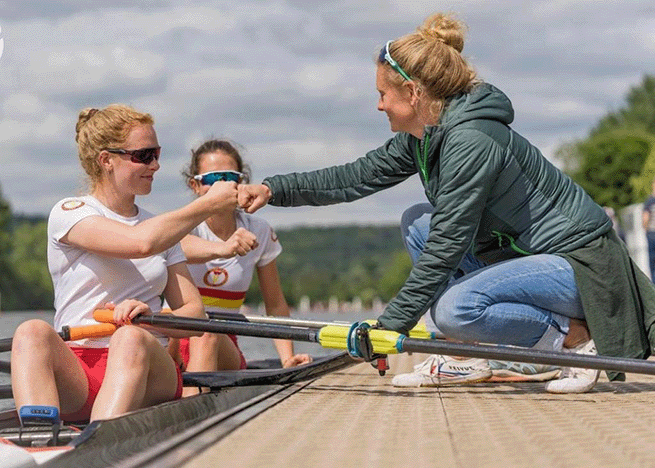
Listening to learn
When asked to advise current and aspiring coaching regarding coach development, MacCallum encourages listening to others. “The more time you spend in your own bubble, the more you assume you have got it right” – a risky game according to Rhona. If, as a coach, you are looking for and expecting constant improvement, then it is only fair to seek out ways to improve yourself as well. MacCallum stresses the importance of adapting and changing, to avoid becoming ‘stale’. Working with the GB Under-19 programme, Rhona has had the opportunity to hone her development by observing others, whether that’s for better or worse.
A new age
MacCallum emphasises the impact that internet has had on coaching. Anyone can give – and receive – uncurated information. In this environment, she says, having a strong vision for your squad is key. As a coach, your first task is to agree clear goals and aims, develop a plan to get there, and communicate this to their athletes. And they should share what good looks like, rather than focusing on what the athlete is doing wrong.
All of this considered, Rhona’s award is very well deserved.
Banner photo: Zoe Hayes


